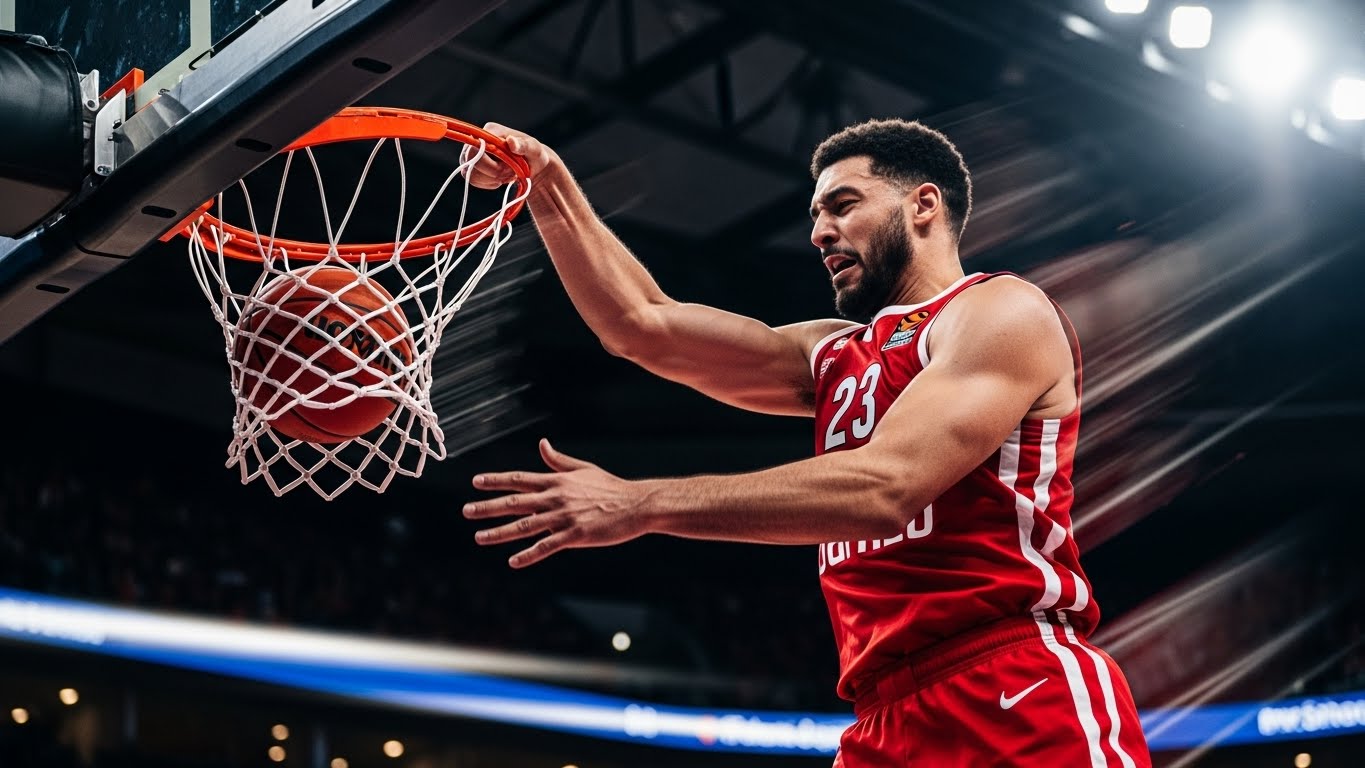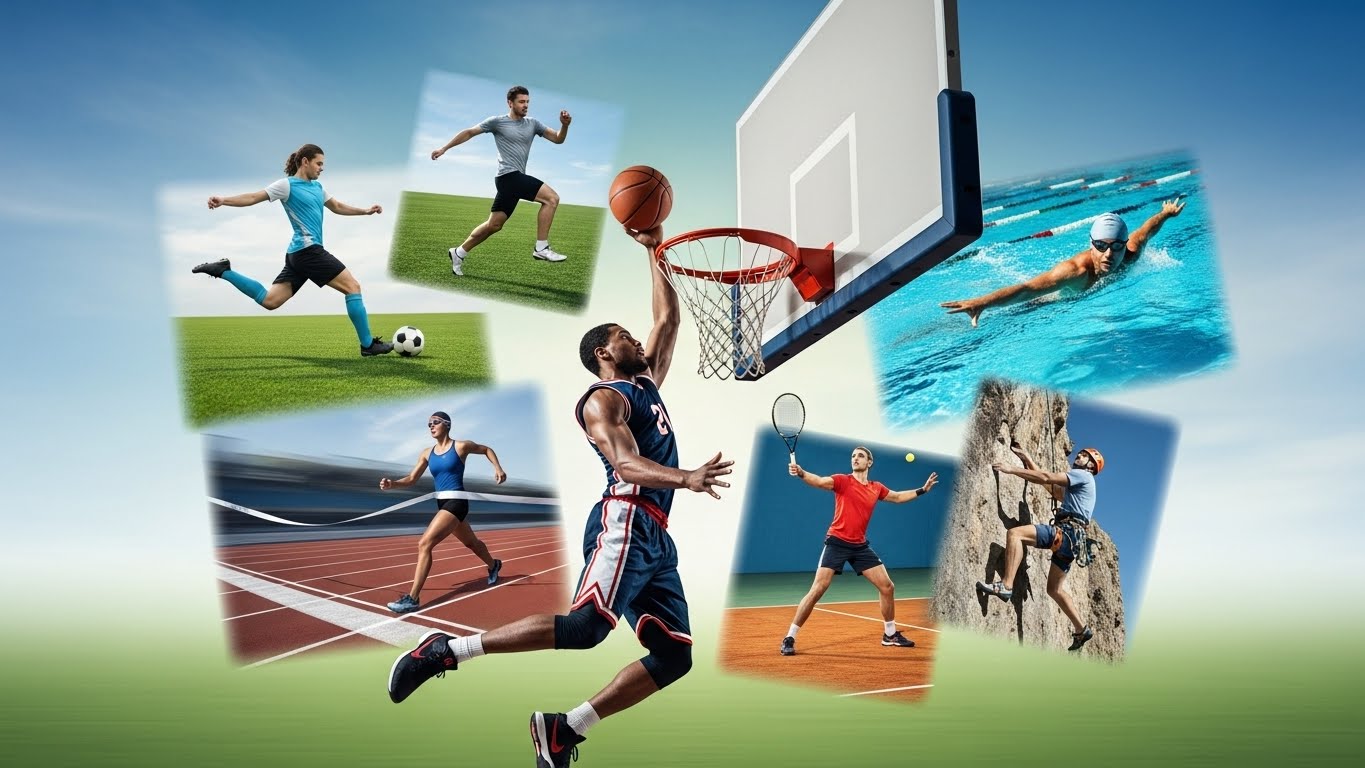Sports have been an integral part of human civilization for centuries, serving as a reflection of culture, a form of entertainment, and a vehicle for personal development. From ancient Olympic Games to modern-day professional leagues, sports encompass a vast array of activities, each offering unique physical, mental, and social benefits. In this article, we will delve deep into the world of sports, exploring their history, types, benefits, impact on society, and future trends.
Understanding Sports: Definition and Scope
Sports can be broadly defined as physical or mental activities that involve skill, strategy, and competition. While traditionally associated with physical exertion, modern definitions also include mind games and e-sports, which require strategy, concentration, and coordination. The primary aim of sports is to challenge participants, entertain spectators, and foster camaraderie among individuals and teams. The scope of sports is vast, including team sports, individual pursuits, extreme activities, recreational exercises, and even competitive online gaming.
Historical Evolution of Sports
The history of sports is as old as civilization itself. Early humans engaged in hunting, running, and physical contests as a means of survival, which gradually evolved into organized competitions. Ancient civilizations such as Greece, Rome, and China introduced structured games and tournaments. The Greek Olympics, first held in 776 BCE, are perhaps the most iconic example, emphasizing physical fitness, discipline, and honor.
During the Middle Ages, sports in Europe were often associated with warfare training, including jousting, archery, and sword fighting. The Renaissance era brought renewed interest in physical culture, with more organized forms of sports emerging in schools and communities. The 19th and 20th centuries witnessed the formalization of many modern sports, including football, cricket, baseball, and basketball, with standardized rules, leagues, and international competitions.
Types of Sports
Sports can be classified into several categories, each with unique characteristics and requirements. Understanding these categories helps appreciate the diversity and appeal of different sports.
1. Team Sports
Team sports involve groups of players working together to achieve a common objective, often scoring points or goals against opponents. Popular team sports include football, basketball, volleyball, cricket, and hockey. Team sports foster collaboration, communication, strategic thinking, and leadership skills.
2. Individual Sports
Individual sports focus on personal performance and skill, often pitting one athlete against another or against personal records. Examples include tennis, boxing, athletics, swimming, gymnastics, and golf. Individual sports cultivate self-discipline, concentration, and personal accountability.
3. Adventure and Extreme Sports
Adventure or extreme sports are designed to test courage, stamina, and risk-taking abilities. Activities like rock climbing, skydiving, paragliding, surfing, and snowboarding fall into this category. Participants often experience adrenaline rushes, mental toughness, and resilience while engaging in these high-risk sports.
4. Recreational Sports
Recreational sports are primarily undertaken for enjoyment, fitness, and relaxation rather than competition. Jogging, cycling, yoga, swimming, and badminton are common recreational sports. These activities promote overall well-being and provide a healthy outlet for stress.
5. E-Sports
E-sports, or electronic sports, have gained tremendous popularity in recent years. Competitive video gaming requires quick reflexes, strategic thinking, teamwork, and hand-eye coordination. E-sports tournaments now attract global audiences, professional sponsorships, and lucrative prize money.
Benefits of Sports
Sports offer a multitude of benefits, spanning physical, mental, social, and economic aspects.
Physical Benefits
Participation in sports improves cardiovascular health, builds muscle strength, enhances flexibility, and boosts endurance. Regular physical activity reduces the risk of chronic illnesses, such as obesity, diabetes, and heart disease. Additionally, sports improve coordination, balance, and agility.
Mental and Emotional Benefits
Sports positively impact mental health by reducing stress, anxiety, and depression. Physical activity triggers the release of endorphins, also known as “feel-good hormones,” promoting a sense of well-being. Engaging in sports also enhances focus, discipline, confidence, and problem-solving skills.
Social Benefits
Sports serve as a social glue, bringing people together from diverse backgrounds. Team sports teach collaboration, communication, leadership, and conflict resolution. Fans and participants alike experience community, camaraderie, and shared excitement through sporting events.
Educational and Cognitive Benefits
Sports participation has been linked to improved academic performance and cognitive abilities. Strategic thinking, decision-making, time management, and goal-setting skills developed through sports often translate into academic and professional success.
Economic Benefits
Sports contribute significantly to the global economy. Professional leagues, sponsorships, merchandise, and broadcasting generate substantial revenue. Sports tourism, including attending matches and tournaments, boosts local economies. Furthermore, sports careers offer employment opportunities in coaching, management, media, and event planning.
Sports and Society
Sports influence society in numerous ways, from shaping cultural identity to fostering unity and social change. Sporting events often become platforms for national pride, diplomacy, and community development. Major events such as the Olympic Games or the FIFA World Cup transcend borders, bringing diverse nations together in a celebration of human achievement.
Sports also play a role in addressing social issues. Campaigns promoting gender equality, inclusion of differently-abled athletes, and anti-discrimination initiatives often leverage sports as a universal medium for awareness and change.
Iconic Sports Figures
Throughout history, sports have produced legendary figures who inspire millions. Athletes such as Muhammad Ali, Serena Williams, Lionel Messi, Michael Jordan, and Usain Bolt have become global icons, not only for their exceptional skills but also for their resilience, dedication, and impact on society. These figures exemplify how sports transcend physical performance, influencing culture, media, and social values.
Modern Trends in Sports
Sports continue to evolve with technological advancements and changing societal preferences. Some notable modern trends include:
1. Technological Integration
Technology has transformed sports through wearable devices, performance analytics, virtual reality training, and instant replay systems. Athletes and coaches use data-driven insights to enhance performance, prevent injuries, and refine strategies.
2. Growth of Women’s Sports
Women’s sports are gaining unprecedented recognition and support globally. Increased media coverage, sponsorships, and professional leagues are empowering female athletes and inspiring future generations.
3. Fitness and Wellness Culture
The modern fitness movement has blurred the line between professional sports and recreational fitness. Activities like CrossFit, marathon running, and obstacle courses have created new communities and opportunities for participation.
4. E-Sports Expansion
E-sports continues to grow, attracting global audiences and investment. Online streaming platforms, professional tournaments, and collegiate programs have legitimized competitive gaming as a mainstream sport.
5. Sustainability and Ethical Practices
Sports organizations are increasingly adopting environmentally sustainable practices. From eco-friendly stadiums to responsible event management, the focus on sustainability reflects broader societal concerns about climate change and ethics.
Challenges in the World of Sports
Despite the numerous benefits, sports face several challenges:
1. Doping and Fair Play
Performance-enhancing drugs remain a persistent issue, undermining fairness and athlete health. Strict regulations, testing protocols, and education programs aim to combat this problem.
2. Financial Inequality
While professional sports generate enormous revenue, financial disparity exists among athletes, leagues, and nations. Unequal access to training, facilities, and sponsorships can hinder talent development.
3. Mental Health Pressures
Athletes face intense physical and psychological pressures, including performance anxiety, public scrutiny, and career uncertainty. Mental health support systems are crucial to ensure holistic well-being.
4. Accessibility and Inclusion
Not everyone has equal access to sports due to economic, cultural, or infrastructural barriers. Promoting inclusivity for differently-abled individuals, women, and marginalized communities remains a priority.
The Future of Sports
The future of sports promises exciting developments. Emerging technologies, globalization, and evolving cultural attitudes will shape the landscape of sports for decades to come. Virtual reality competitions, AI-driven analytics, personalized training programs, and increased gender equality are poised to redefine participation, viewership, and fan engagement.
Sports will continue to act as a bridge between nations, communities, and individuals. They will remain a powerful tool for education, social change, and personal growth. The essence of sports—the spirit of competition, discipline, and human excellence—will endure, inspiring generations to push boundaries, celebrate diversity, and embrace the joy of play.
Conclusion
Sports are far more than games or physical activity; they are a reflection of human potential, creativity, and connection. From promoting health and well-being to fostering social cohesion and inspiring cultural pride, sports touch every aspect of life. Understanding their history, types, benefits, and societal impact allows us to appreciate the profound role they play in our world.
As we look forward to the future, sports will continue to evolve, innovate, and unite. They remind us of the value of teamwork, perseverance, and fair competition while celebrating the diversity of human talent. Whether played professionally or for leisure, sports remain a universal language, bridging gaps, nurturing dreams, and shaping the character of individuals and societies alike.



